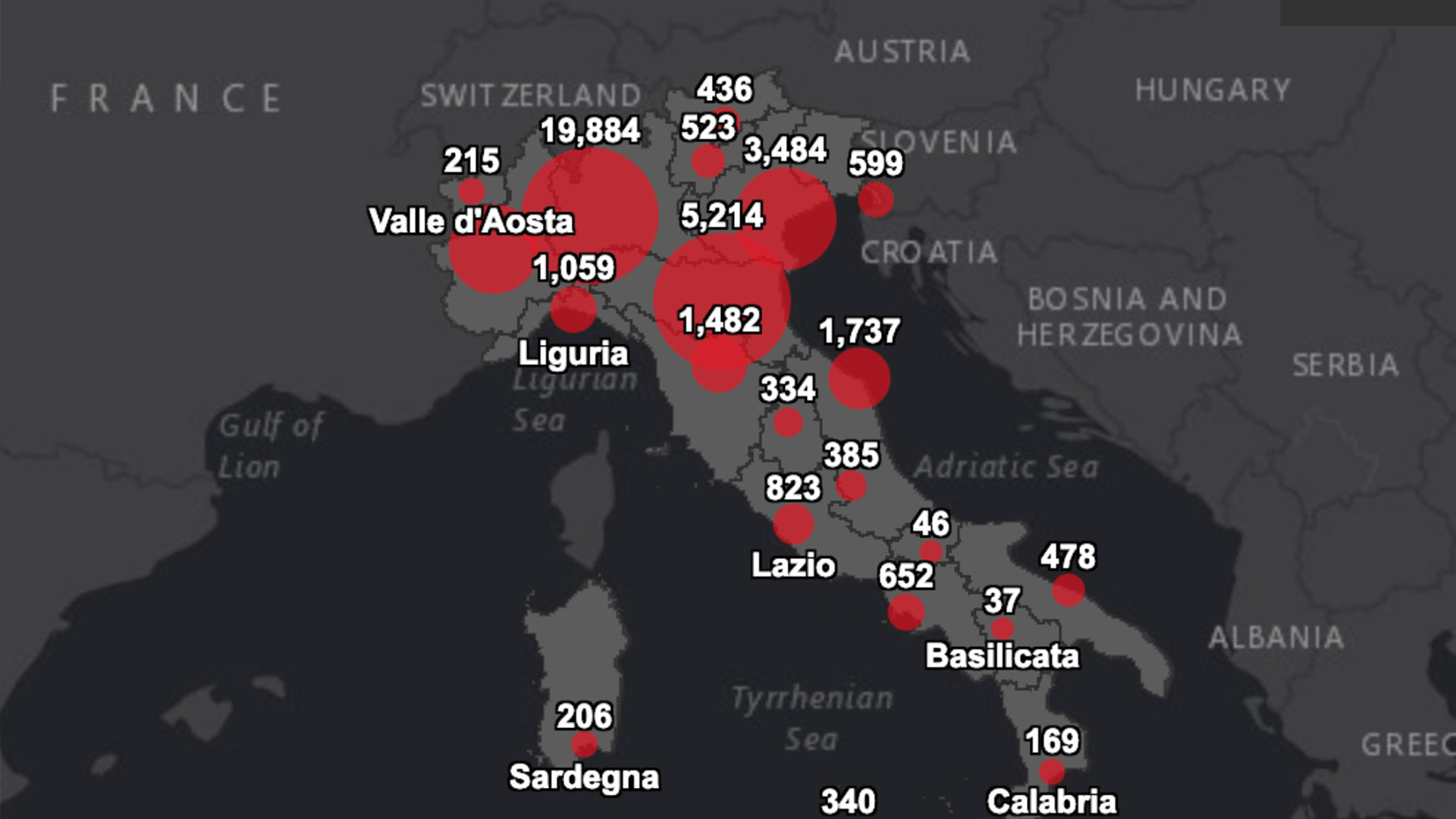When COVID-19 surged in Italy in March 2020, U.S. cancer centers had no road map for managing care—and risk—for immunocompromised patients:
How can hospitals keep patients safe? Is it possible to prevent COVID infection while continuing cancer treatment? How should oncologists respond when a cancer patient contracts COVID? What do hospitals do when health care workers are infected?
The number of cases and deaths in Lombardy, at the time, was among the highest in the world. Seeking insight, The Cancer Letter called Giuseppe Curigliano, associate professor of Medical Oncology at University of Milano and the head of the Division of Early Drug Development at European Institute of Oncology, who is based in the Lombardy region—then the epicenter of the outbreak.
“It’s like being in a war or under a terrorist attack when usually 10% of people go in intensive care,” Curigliano said. “It’s a spectral atmosphere where no one is walking or working, because, in Milano, the only activities that open are the hospital, the store where you can buy food, and the pharmacies.”
A year later, Fox Chase Cancer Center CEO Richard I. Fisher stated that Carolan’s coverage of COVID-19 and cancer patients in Italy helped him prepare his Philadelphia-based institution for the pandemic (The Cancer Letter, March 5, 2021).
“Early in the pandemic—I can’t claim the origin of the idea myself—I was reading about the Italian hospital or hospitals that had tried to remain COVID-free—cancer hospitals in Italy,” Fisher said. “We decided to try and keep this a COVID-free hospital. And in essence, we have been able to do that, by and large.”
This series was a finalist for a 2021 Dateline Award, presented by the Washington, D.C. chapter of the Society of Professional Journalists.











